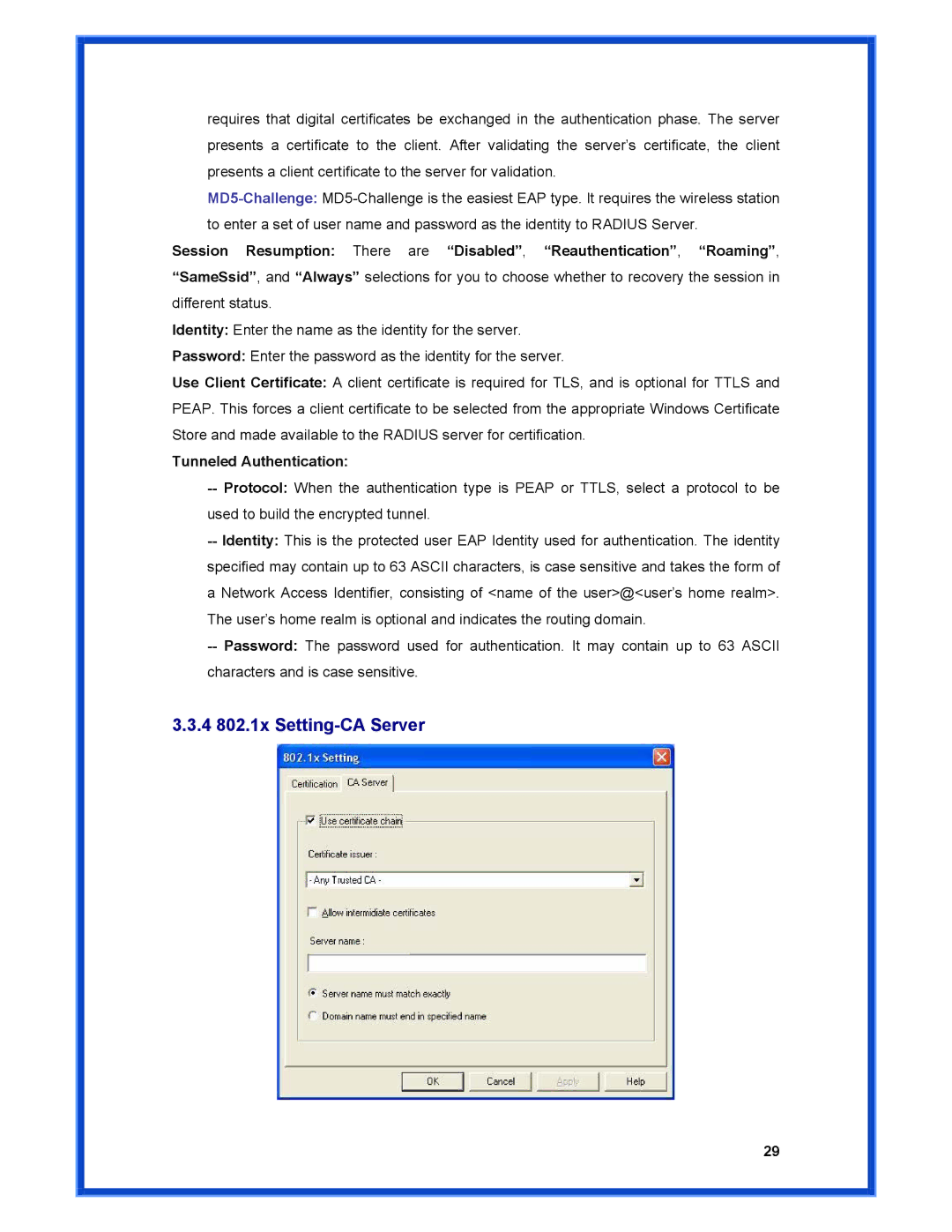
requires that digital certificates be exchanged in the authentication phase. The server presents a certificate to the client. After validating the server’s certificate, the client presents a client certificate to the server for validation.
Session Resumption: There are “Disabled”, “Reauthentication”, “Roaming”, “SameSsid”, and “Always” selections for you to choose whether to recovery the session in different status.
Identity: Enter the name as the identity for the server.
Password: Enter the password as the identity for the server.
Use Client Certificate: A client certificate is required for TLS, and is optional for TTLS and PEAP. This forces a client certificate to be selected from the appropriate Windows Certificate Store and made available to the RADIUS server for certification.
Tunneled Authentication:
--Protocol: When the authentication type is PEAP or TTLS, select a protocol to be used to build the encrypted tunnel.
--Identity: This is the protected user EAP Identity used for authentication. The identity specified may contain up to 63 ASCII characters, is case sensitive and takes the form of a Network Access Identifier, consisting of <name of the user>@<user’s home realm>. The user’s home realm is optional and indicates the routing domain.
--Password: The password used for authentication. It may contain up to 63 ASCII characters and is case sensitive.
3.3.4802.1x Setting-CA Server
29
